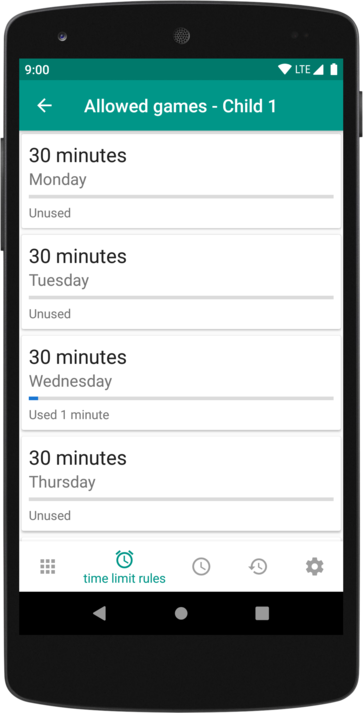Media literacy
With most of the schools re-opening, many parents have to decide whether or not to give their children a smart-phone. However, this decision involves many questions, considerations and pitfalls that should be dealt with before the purchase. Every child can type and wipe – even adults. The decisive question is rather, how can the use of a smartphone be made as child and youth friendly as possible?
The answer to this question is shockingly simple, but at the same time incredibly difficult to put into practice, ‘Media literacy’. Media literacy describes the ability to use media and its content in an expert manner in accordance with one’s own goals and needs.
What sounds trivial is basically one of the most important qualities parents should instill in their children. Today this property is essential and so fundamental because it not only enables people to use media such as books, magazines, television, internet etc., but also helps to maintain a critical and healthy distance from the media.
We are constantly surrounded by a wide variety of media, which leads to a kind of constant exposure and an endless flood of information. The smartphone plays a special role here, as it combines a wide variety of media and enables practically endless media consumption. Without clear rules, apps that help to adhere to them and, above all, to impart media skills, children are lost in this information world. It is our job as parents to intervene, act and guide them.
What is the correct age?
As our civilization is advancing, the right age to do things is also changing in many spheres of life. In a few cases, it is just not as same as previous generation. Before buying a smartphone for your child, you should first find out at what age is recommended or good enough to start using one. Also, whether your child actually needs one and is ready for a smartphone. The European Union initiative for more security on the net, klicksafe, says, ‘A fully functional smartphone is therefore rather not suitable for children under 12 years of age.’

In an interview with Spiegel, Kristin Langer, a certified educationist, says, ‘The parents’ guide “Schau hin!” [a joint initiative of The Federal Ministry for Family Affairs, Senior Citizens, Women and Youth in Germany] recommends a smartphone from the age of eleven or twelve. Then children are usually emotionally strong enough to say I don’t want to watch a video in which someone is tortured, even if my classmates are watching it.
Also, in further sources an age is often called around 12 years. And let’s be realistic: Unfortunately, it will probably not be possible to “postpone” it any longer, as children will feel excluded and may even become outsiders, as over 60% of 12 to 13-year-olds already have a smartphone. Nevertheless, there are also critical voices like brain researcher Manfred Spitzer, who recommend smartphones without supervision only from the age of 18, so basically not until a person becomes an adult. Ultimately, this decision must be made by everyone for himself. Personally, I would never let our my own son under 12 years of age have her own smartphone.
Communicate about clear rules. Teach media literacy
As soon as the child is mature enough or you have decided to buy a smartphone, the question of how to deal with it as a parent arises. I think it is essential to establish a few clear rules for living together as a family:
- No smartphone at the dining table or during meals
- No two screens in parallel. So for example either TV OR Smartphone
- No smartphone when spending time together (e.g. board game)
- Put away your smartphone completely when talking to other people
- Turn off your smartphone while doing homework
- Turn off your smartphone before going to bed
First of all, these are only rules of conduct. Basically, children or young people are curious and will try to see or try out all kinds of things with the smartphone – even things that are definitely not suitable for children. Therefore, the smartphone or the infinite vastness of the Internet should be discovered together with the children and communicated clearly to the child:
If you see or hear something that you cannot classify, you can always come to me with it and we can look at it together. I will not take the smartphone away from you.
The logic is very simple. At some point, children and especially young people will come across porn, violent videos etc. However, for fear of having their smartphones taken away, they often do not go to their parents with disturbing content. It is therefore particularly important to convey to the child that he or she can always turn to the parents with confidence without running the risk of having the smartphone taken away.

The goal should be to teach the child media literacy – but this can only succeed if parents take the time to do so and do it at eye level.
Make Android child and youth friendly with technology
However, clear rules and taking your time are only half the battle. The question that probably preoccupies most parents is the following: How can a smartphone / tablet be made child-proof? In my opinion, the best option is: explore the smartphone together with the child and consume or question content, apps, etc. There are various apps that can be used to set up a kind of parental control – however, most apps in this area are not very privacy-friendly and a lot of information ends up with the app manufacturers. In addition, many functions of monitoring (e.g. locating devices) are equivalent to what, in my opinion, constitutes an invasion of privacy. A German online portal for secure cell phone use known as ‘mobilsicherheit’ has put some parental control apps to a test. In the end, their independent editorial team only found JoLo app by Jolo Software to be recommended. The functions are well thought-out without being encroaching on the child’s privacy: parents can remotely see how much usage time has been used in total from each category, but not which app the child uses when and for how long.
There is some good news from Jolo Software. JoLo is no longer actively developed. Instead the same developers have released a free and open, TimeLimit App.
As per the developer, Jonas Lochmann, TimeLimit / JoLo parental control is a parental control application for smartphones, where parental control means a tool for time limitation. What was special was the category system that allowed you to set a time limit that applies to multiple apps, which I could not find on any such app at the time (2015). In the beginning it was called JoLo Parental Control, was quite simple and closed source. Later there was the new development in called TimeLimit, which was partly open source in the beginning and later released as completely open source and can do much more than the originally JoLo Parental Control. TimeLimit can work without any server. If you want to network several devices, this is no longer possible. Then you can use the server he is in charge of – or you can use your own and be independent.

Other than the Google Play Store, TimeLimit can also be downloaded from Free/libre F-Droid store to ensure that the agreements made between parents and child/teenager are adhered to. A direct download of APK file is also made available.
Apart from the topic of media literacy, the issue of data protection or privacy naturally also plays an important role when using an Android smartphone. Google Android smartphones are basically designed for data collection. Almost every app from the Google Play Store has integrated various trackers that analyze usage behavior, display advertising, and are therefore not very privacy-friendly overall. However, since children and teenagers in general are very curious and want to try out all kinds of apps, the question of how to deal with them arises. I would like to briefly outline a possible solution. Within the family, there is a so-called “data-slinging smartphone” that can be loaded with all conceivable apps and content.
The following rules apply:
- The use is always under the supervision of an adult – please always keep the promotion of media literacy in mind.
- No personal data is stored or entered, but rather “fake profiles” or false information is used wherever possible.
- If there is another device that belongs to the child / adolescent. There should be clear rules for this, it is at best to go with a “de-googled” smartphone or at least one that is protected from the data collectors/trackers with a tool like Blokada.

With a free and open parental control app like Jolo Software’s TimeLimit you can “enforce” the agreements made together on the usage period etc. But, here too, parents should install the apps together with their children, explore as much content as possible together and place a trusting relationship in the foreground.
Conclusion
I am sure, most parents like me, will have further questions as follows:
- What should be considered when dealing with social networks?
- Is my child addicted to smartphones?
- For years my child could do whatever they wanted with their cell phones and computers. How can I restrict this now and steer it in a reasonable direction?
- My child is exposed to cyber bullying – what is it or what can I do?
- Endless smartphone? Arrange clear media times.
All the above stated queries are reasonable and legit. If you happen to struggle with a similar query as a parent. Let us be honest. There is no simple or standard reply to one. Kindly take professional advise from authorities on the subject-matter and follow their advice based on trusted guidelines. Parents must not shy away from seeking help, as it is vital for the future for their own kids.
Teaching media skills and educating our young people is basically a task for society as a whole. The school environment, friends and not least the parents, who have a special responsibility here, probably have the most influence on the development of media literacy.

Parents should not only teach their children about it, but also set a good example and take the rules in the household into account. For instance, parents should avoid being smombies around their children and in general. Your little ones copy you and learn from you first.








